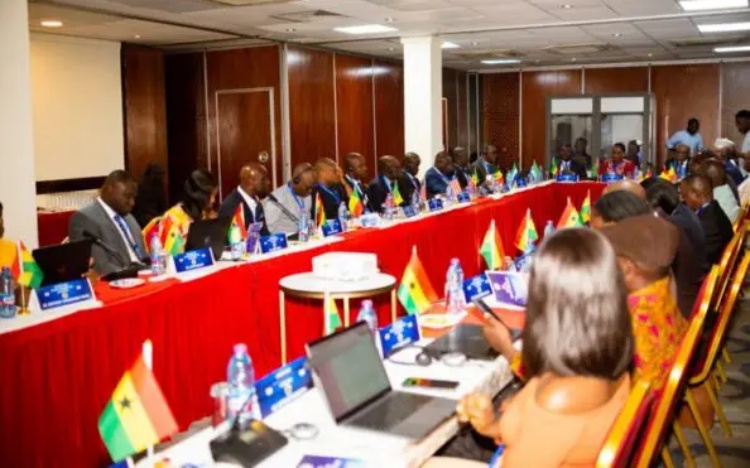Gambiaj.com – (Accra, Ghana) – Security experts from ten West African countries have gathered in Accra for a high-level conference hosted by the Centre for Intelligence and Security Analysis (CISA), a Ghana-based non-governmental organization. The two-day event, held at the Lancaster Hotel, brings together Directors-General and senior representatives from the security apparatus of Benin, Burkina Faso, Chad, Ivory Coast, The Gambia, Guinea, Liberia, Senegal, Sierra Leone, and Ghana.
The conference, which runs from November 7 to 8, centers on the theme “New Paradigms for Ensuring Peace and Security in Africa – The Need for Closer Collaboration with Non-Governmental Security and Intelligence Organizations.” In his opening address, CISA CEO Rasheed Seidu Inusah emphasized that Africa’s security landscape is undergoing a pivotal transformation, necessitating deeper collaboration among state and non-state actors to tackle shared threats.
“There is no doubt that our collective security as Africans is at a pivotal moment in our history,” Inusah remarked, drawing attention to the mounting challenges of political instability, insurgencies, and socio-economic disruptions across West Africa. “An urgent rethink of national security is necessary to overcome the myriad of threats to our region,” he stated.
Inusah further outlined the key focus areas of the conference, including “security contagion”—the cross-border spread of threats, misinformation and disinformation, and effective resource management to bolster resilience against these threats. He noted that while these security challenges are complex and multifaceted, they offer new opportunities for cooperative action.
In a keynote speech, Olivia Ragnaghnèwendé Rouamba, Burkina Faso’s former Minister of Foreign Affairs, addressed the limitations of traditional state-led security measures. She highlighted the increasingly essential role of non-governmental security and intelligence organizations (NGSIOs) in addressing Africa’s modern security challenges, which include terrorism, insurgency, and inter-ethnic violence.
“Africa’s traditional approach to security, heavily reliant on government-controlled military and intelligence services, has proven inadequate in addressing the continent’s modern security challenges,” Rouamba noted, citing the rising instability in the Sahel region as an example. “State-centric strategies, while foundational, require complementary support from NGSIOs,” she added, underscoring the value of partnerships with NGOs and private security firms.
Rouamba pointed to Kenya’s NGO Search for Common Ground as an example of effective community-based security interventions. By promoting dialogue and providing conflict resolution training, the organization has reduced the influence of extremist groups such as al-Shabaab, she explained, adding that similar approaches could be beneficial in other parts of Africa.
In West Africa, Rouamba highlighted the African Centre for the Study and Research on Terrorism (ACSRT), which collaborates with NGOs to enhance intelligence-sharing across the region. These partnerships, she noted, strengthen the ACSRT’s ability to provide early warning and develop effective response strategies against evolving threats.
The conference is set to conclude with a communiqué outlining the resolutions and collaborative strategies adopted by the delegates.










